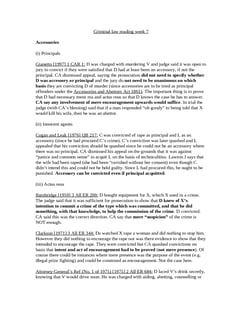Judgement for the case R v Hardie
Table Of Contents
KEY POINTS
The nature of charges of arson and damage to property was pressed when the defendant's self-induced intoxication was used as a defense.
Absence of intention due to voluntary intoxication can be used as a defense if the intoxicant does not cause any unpredictability or aggressiveness and is only the sedative drug.
FACTS
In this case, a strained cohabitation led to the defendant ingesting Valium tablets from the woman's supply after she insisted that he vacate her flat. Later, a fire broke out in the flat's bedroom while the woman and her daughter were in the adjacent sitting room.
The defendant faced criminal charges under the Criminal Damage Act of 1971, alleging property damage intending to endanger life or reckless disregard for potential harm to others.
During the trial, the defendant argued that his drug-induced state prevented him from forming the necessary criminal intent. However, the judge instructed the jury that voluntarily taking the drug couldn't be a defense against mens rea.
-
Despite his defense, the defendant was convicted and appealed, primarily on two grounds:
The interpretation of recklessness and intent regarding property damage endangering life, and
The jury instruction related to his mens rea defense.
JUDGEMENT
Due to an act that resulted in property damage, the defendant created an evident risk of property destruction and endangering another person's life while giving no thought to the possibility of either risk, they committed an offense under section 1(2) of the Criminal Damage Act 1971.
While self-induced intoxication from alcohol or a dangerous drug couldn't serve as a defense for ordinary crimes involving recklessness (due to the inherent risk associated with taking such substances), distinct considerations arose when the normal effect of a drug was merely sedative or soporific.
In such cases, even excessive drug consumption couldn't automatically presume that proof of intoxication couldn't be admitted to demonstrate the absence of mens rea (criminal intent).
The jury should not have been directed to disregard any incapacity resulting from the defendant's ingestion of Valium, a drug substantially different from substances that might induce unpredictability and aggressiveness. Instead, the jury should have been instructed that if, as a result of Valium consumption, the defendant was unable to appreciate the risks to property and individuals stemming from his actions, they should then consider whether taking Valium itself had been a reckless act.
As it couldn't be definitively stated that the jury would have convicted the defendant had they received proper guidance, the appeal would be allowed, and the conviction quashed.
-
Per Curiam –
Self-administering a sedative or hypnotic drug may not defend against a charge of reckless driving, as a person in control of a motor vehicle must maintain continuous conscious control.
When the prosecution relies on alternative charges of specific intent and recklessness, these alternatives should be presented in separate counts within the indictment. If the indictment combines both alternatives into a single count, the judge should instruct that the indictment be amended accordingly.
COMMENTARY
A deteriorating relationship led the defendant to ingest Valium, a sedative drug belonging to his partner, resulting in a tragic incident. He later started a fire in the flat they shared, endangering lives. Charged under the Criminal Damage Act 1971, he argued that the drug had affected his intent.
The judge instructed the jury that voluntary drug consumption couldn't excuse intent. The defendant was convicted. On appeal, he contended that recklessness regarding property damage couldn't equate to intending harm to human life, and the judge misinstructed on mens rea.
The court ruled that he violated the law if the defendant's recklessness created obvious risks to both property and lives. Self-induced sedative intoxication differed from dangerous drugs, allowing consideration of its effect on mens rea. The appeal succeeded, overturning the conviction.
The court also noted that self-administered sedatives can't excuse reckless driving. It recommended separate counts for specific intent and recklessness in indictments.
ORIGINAL ANALYSIS
A man was told he had to leave a flat by the owner and she allowed him to take her valium tablets to calm him down. In a state of intoxication he set fire to a wardrobe.
The judge directed that voluntary self-administration of intoxicants was not a defence since it did not negate the mens rea. He was convicted of arson.
The CA allowed his appeal since the valium was taken only with the intent of calming himself, Hardie (H) being unaware of what risk this created.
For Further Study on R v Hardie
Need instant answers? Our AI exam tutor is here to help.
Ask questions 🙋 Get answers 📔 It's simple 👁️👄👁️
Our AI is educated by the highest scoring students across all subjects and schools. Join hundreds of your peers today.
Get StartedRelated Product Samples
These product samples contain the same concepts we cover in this case.
| Criminal Law | Defences Notes (32 pages) |
| Criminal Law | Defences Short Notes (28 pages) |

 Since 2010, Oxbridge Notes has been a trusted education marketplace, supplying high-quality materials from top achievers at universities like Oxford, Cambridge, LSE, Harvard, and Yale.
Since 2010, Oxbridge Notes has been a trusted education marketplace, supplying high-quality materials from top achievers at universities like Oxford, Cambridge, LSE, Harvard, and Yale.